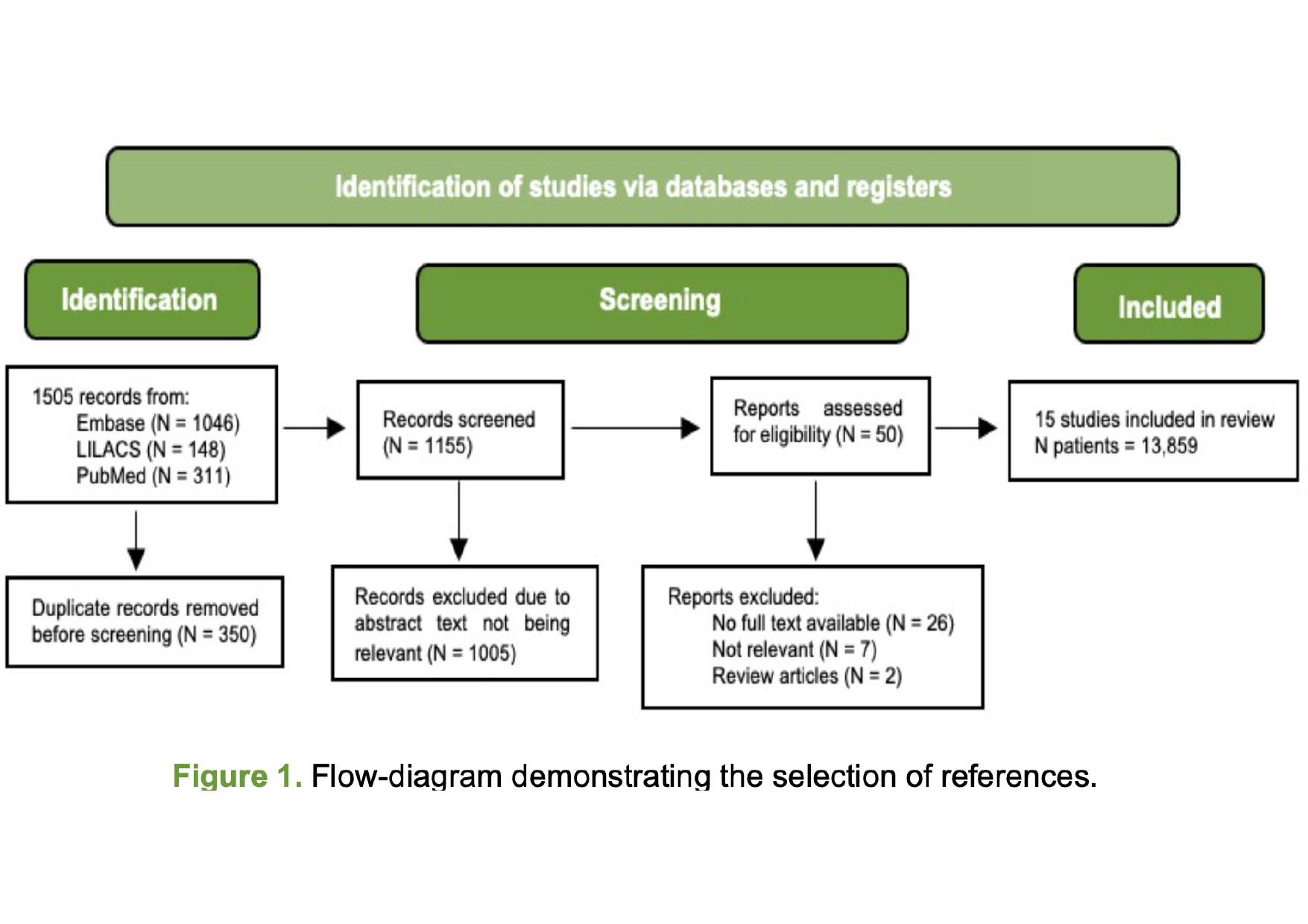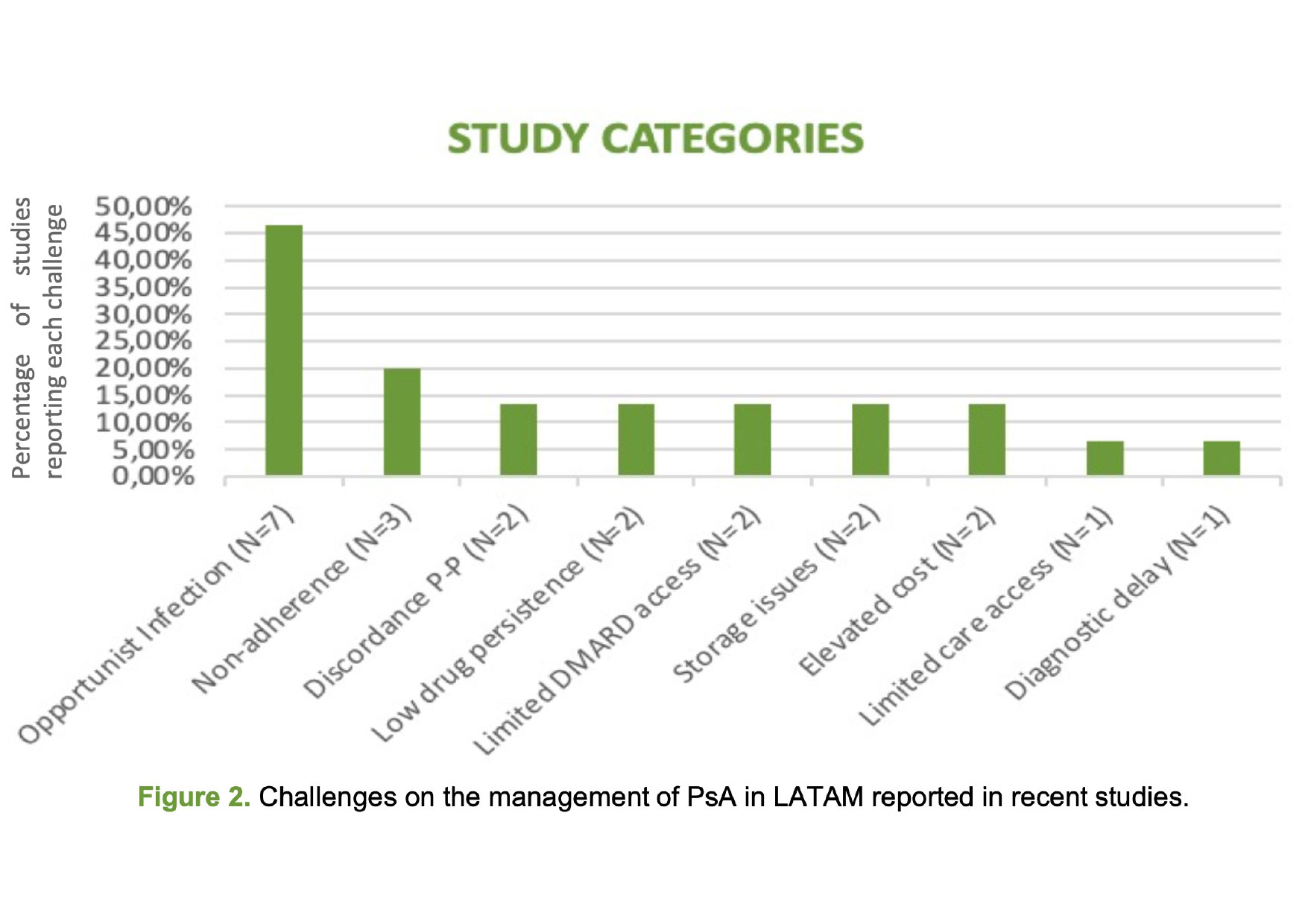Session Information
Session Type: Poster Session A
Session Time: 1:00PM-3:00PM
Background/Purpose: In 2020, the International League of Associations for Rheumatology (ILAR) recommendations for management of psoriatic arthritis (PsA) were published. It aimed to adapt GRAPPA and EULAR recommendations to resource-poor settings. At that time, the paucity or absence of clinical studies endorsing the management of PsA patients in Latin America (LATAM) was remarked on by the international working group. Despite several challenges faced by patients and physicians in resource-poor countries, the literature on this theme is scarce. Our objective was to recognize the main challenges on the management of PsA in LATAM described in recent publications.
Methods: A systematic literature review (SLR) of clinical trials reporting at least one challenge/difficulty on the management of PsA in LATAM was conducted following PRISMA statements. References published in PubMed, Embase, and LILACS between 1980 and 2020 were included. The selection of references was conducted independently by two researchers in the Rayyan QCRI program. Data were independently extracted by two reviewers. The Cochrane tool was used to assess the quality of studies. All challenges were noted and categorized into domains. Data analysis was descriptive.
Results: The search strategy resulted in 1505 references. Fifteen studies (13,859 patients) were included in the final analysis: most were performed in Brazil (86.6%, N=13), recruited patients on biological therapy (80%, N=12) and were observational studies (100%, N=15). Difficulties faced by PsA patients and physicians were the high incidence of opportunistic infections (described in 46.6% of publications, N=7), non-adherence to therapy (20%, N=3), discordance between patients and physicians regarding remission rates (13.3%, N=2), low drug persistence (13.3%, N=2), limited access to DMARDs (13.3%, N=2), issues related to the storage of biological drugs (13.3%, N=2), elevated cost of biological drugs (13.3%, N=2), limited access to medical care (6.6%, N=1) and diagnostic delay (6.6%, N=1).
Conclusion: The challenges in the management of PsA in Latin America go beyond the care of opportunistic infections: special attention should be paid to logistical questions (e.g., correct medication storage, access to drugs and medical care) and educational problems (e.g., importance of adherence, patients understanding of disease and therapy). A research agenda focused on the idiosyncrasies of treatment in Latin America, which go beyond the classic clinical features and dive into cultural and economic facets, should be devised to better understand and to tailor new guidelines for this region of the globe.
To cite this abstract in AMA style:
Ribeiro A, Dullius L, Azeredo A, Coates L, Monticielo O, Kohem C, Palominos P, Sartori N. Challenges in the Management of Psoriatic Arthritis in Latin America: A Systematic Review [abstract]. Arthritis Rheumatol. 2022; 74 (suppl 9). https://acrabstracts.org/abstract/challenges-in-the-management-of-psoriatic-arthritis-in-latin-america-a-systematic-review/. Accessed .« Back to ACR Convergence 2022
ACR Meeting Abstracts - https://acrabstracts.org/abstract/challenges-in-the-management-of-psoriatic-arthritis-in-latin-america-a-systematic-review/


